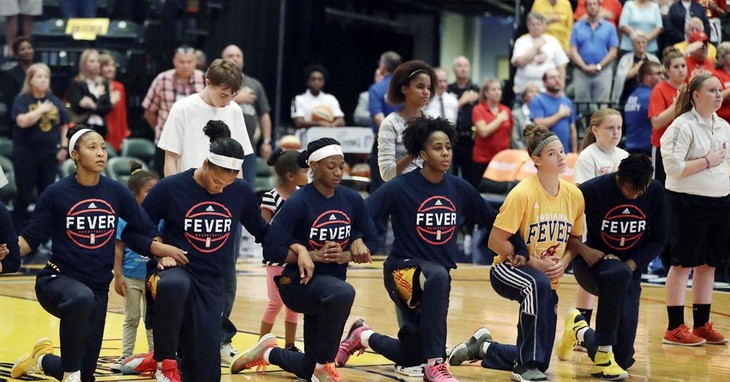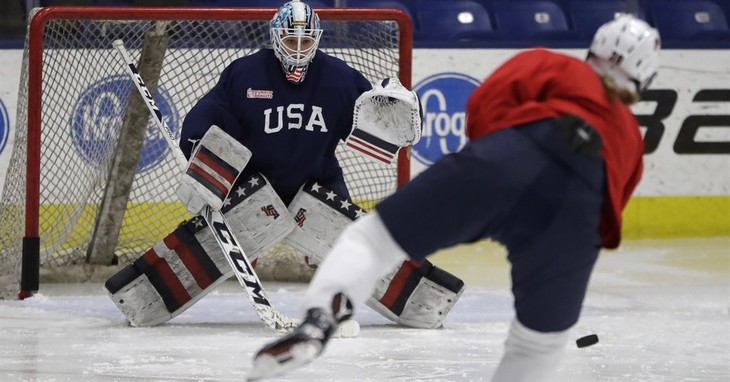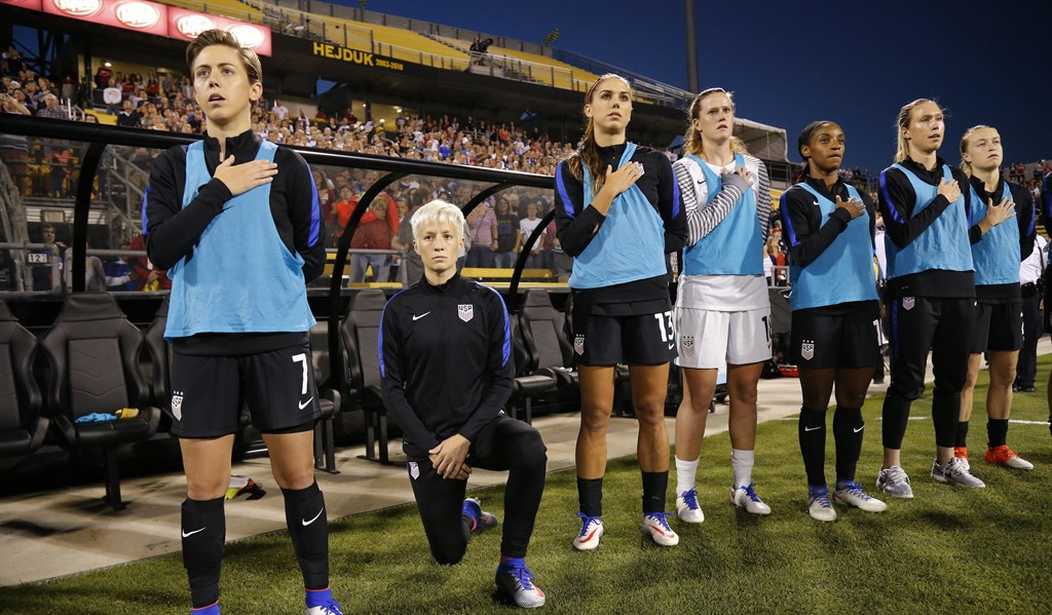In the fight for athletic equality women’s sports have been hurt less by men than by their infighting.
Over the past few years, we have been served with the next wave of gender equality. From #MeToo to pay inequality,to every inequity being blamed on toxic masculinity, there has been a desire to wage anew the Battle of the Sexes. Look at the strained effort to get the Equal Rights Amendment finally passed, although that strikes me as odd. I’m not sure how you are advancing women’s issues by adapting legislation from 50 years ago.
One of the other issues in this realm has been the fight to get respect for women’s athletics. There have been some legitimate complaints, such as the NCAA women’s basketball issue at last year’s final tournament, where the men had a sprawling workout room apparatus at their disposal, yet the women’s teams were granted a solitary rack of free weights. Other battles, however, have brought less obvious arguments.
In women’s soccer, there has been an ongoing battle with USA athletics to get compensation for the women’s team equal to the men’s team. The demand has long been centered on the equal-pay-for-equal-work premise, despite the fact that the disparity is a result of unequal results. The reality is the women draw far less in attendance and ratings — a reality the women obviously do not want to address.
Also hurting their cause was the very avowed activism, especially from star Megan Rapinoe. She has led the team with her pronounced kneeling during the national anthem, something that has both caused some discord on the roster and has blunted support for the team in general.
Former star goalkeeper Hope Solo mentioned that it was used as a force in the locker room. “I think the kneeling thing can be very divisive,” Solo added. “I’ve seen Megan Rapinoe almost bully players into kneeling.’’
This had led to backlash. Going into the Tokyo Olympics, the women’s team appeared bent on diminishing any of its recently earned public support. They failed to show up for the opening ceremony, and the consistent kneeling before the Games even began led to a number of Americans rooting against the team, and taking pleasure in their missing the Gold Medal Game due to a loss.
Women’s basketball has been just as divisive. Teams routinely leave the court during the national anthem, and there has actually been more of a controversy when select players chose to remain on the court and stand for the anthem. This is happening in a league that struggles for attention and remains afloat due to an infusion from the NBA. As a sign of support – but also an indication of obliviousness – car maker Buick has a recent woke ad campaign to suggest women’s basketball needs more exposure.

In their commercial spot, aired during March Madness, Buick claims the women are getting the short end of the exposure. “While over 40% of athletes are women, they get less than 10% of the media coverage. Our mission is to help increase women’s visibility in sports.” In the one spot, they feature the winning shot from the women’s final in 2018 – which had been shown live on ESPN.
Also seemingly working against their best interests at times has been women’s professional hockey. Not long ago, the women’s team was included in the Winter Olympics and as a result, there has been a push for women’s leagues on the ice, with notably mixed results. A Canadian women’s league was formed in 2007, and an American female league– the National Women’s Hockey League (NWHL)– debuted independently in 2015. Then in 2018, the Canadian league folded, but hundreds of skaters balked at joining the NWHL and decided to attempt forming their own league.

The two entities have been negotiating a merger, with deep animosities always derailing that effort. The most recent round of talks has again fallen apart, leaving questions hovering. The PWHPA sports only five teams, and the rechristened Professional Hockey Federation has six. Ownerships have been fluid, sponsorships divided, and the NHL has not taken a side, with select teams from that league striking independent partnerships. Maintaining interest and building a fan base has long been a struggle, as a result of these shaky foundations.
Even on the side of media support, there have been self-created problems. Last January, the former NWHL decided to outwardly sever a relationship with Barstool Sports, over perceived negative entanglements with that sports outlet. Barstool CEO Erika Nardini was an avowed fan of the league and featured players on her podcast, working to build up interest in the game and the league. But select members of the league took exception, due to negative publicity surrounding the founder of Barstool, Dave Portnoy.
Name one major sports outlet, person or media entity who has given more love and shine to the @NWHL than me and Barstool. You can’t. If my support for women, women’s hockey and these players isn’t good enough that’s on you not on me. https://t.co/6lxzc1KTd8
— Erika (@erika_) January 23, 2021
Nardini was more than a fan; her dedication stretched to the point of desiring to become a team owner, further broadening both the reach and exposure of the league. But due to personal perceptions, some league executives and a few players expressed their opposition to involvement, creating a feud with Nardini and cutting off any possible interest from the large sports community. Hardly a wise move, as we are talking about the head of that sports portal. Since that dustup in January 2021, Barstool has only covered the women’s game involving international or Olympic play.
While there is certainly a desire for female athletics to be given wider exposure and support, too often, this built-in resistance is challenging to their own growth. As things improve for these leagues, it is understandable to want to meet specific goals, but it seems these are fought for too early and as a result, that growth becomes truncated. It is fine to want things on your own terms, but you also could create short-term lifespans for your sports leagues, when you demand such before becoming truly viable.















Join the conversation as a VIP Member